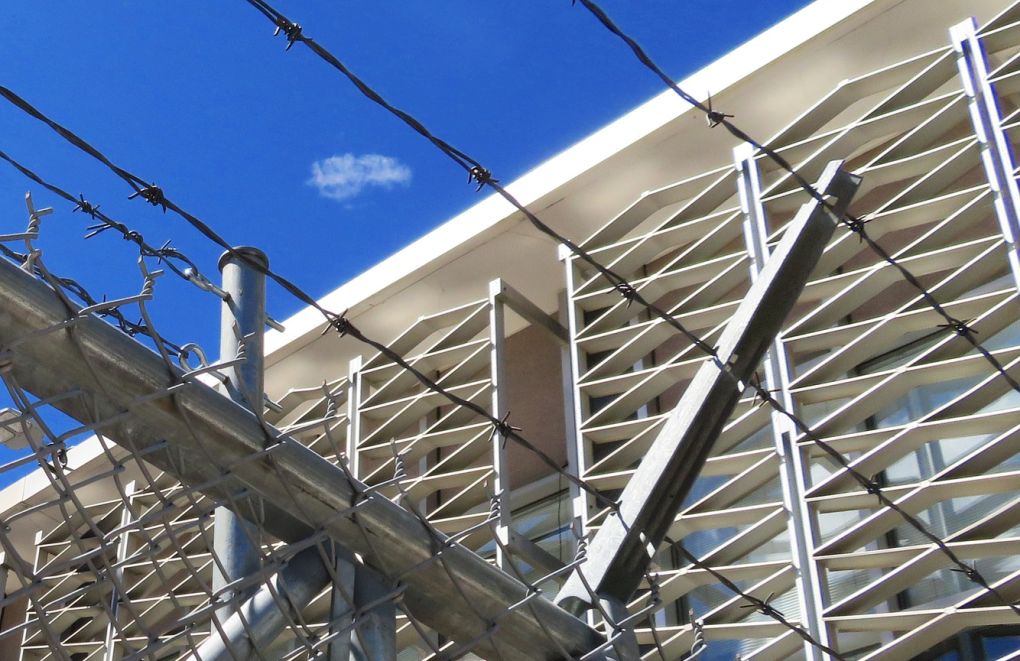* Photo: Pixabay
Click to read the article in Turkish / Kurdish
The Civil Society in the Penal System (CİSST) Association has released its "CİSST 2019 Annual Report" documenting the conditions of Turkey's prisons as well as the conditions of prisoners with special needs.
While the report has been prepared as part of the "Increasing Quality of Monitoring, Reporting and Advocacy Project" funded by the Embassy of the Netherlands, it has been edited by Fahrettin Biçici, prepared by Didem Sağlam and Hilal Başak Demirbaş and contributed by:
Aylin Çelikçi, Berivan Korkut, Cansu Şekerci, Dadlez Sabak, Ezgi Yusufoğlu, Jiyan Ay, Mine Akarsu and Serdar Usturumcalı.
General condition and prisoners with special needs
The report of the CİSST addresses the problems and violations of rights in prison in two chapters. The first chapter of the report focuses on the general condition, the areas with a higher frequency of rights violations and historical turning points in the execution regime.
The second chapter is allocated to the findings of thematic works on the problems of LGBTI+s, children, women, workers, prisoners with disabilities, students, foreign nationals and convicts of aggravated life sentence.
'Capacity arrangements led to rights violations'
The report sheds light into the historical background and timeline of prisons in Turkey from the 1970s till today:
"In the 1970s, there was a transition from wards with 50-60 prisoners to smaller wards for reasons of 'security.' With the introduction of this system, the current ward types have been formed.
"With the law amendment introduced in 2004, the new penal code affecting both the crime categories and the length of prison sentences has entered into force in Turkey; in this process, some principles such as 'integrating prisoners into the society' came to fore.
"Between the years 2005 and 2015, the prison population rapidly increased. Especially with the arrests following the 'coup attempt' in July 2016, the prison population kept on increasing.
"With the increasing population in 2016-2017-2018, the prison population of Turkey was above the world average. The effects of this change and transformation were felt in the year 2019 as well.
"In this period, some arrangements were made in prisons and wards to increase their capacity, which both restricted the living space of prisoners and paved the way for several violations of rights."
'Mechanisms of seeking rights get dysfunctional'
The violations of rights which increased as a result of increasing prison populations have been briefly summarized as follows:
"With the State of Emergency declared after the 'coup attempt', Statutory Decrees that restricted the rights of prisoners entered into effect and, in this process, the letters of prisoners were seized and their right to meet their attorneys was restricted. Prisoners could not voice the rights violations they faced and the mechanisms of seeking rights got dysfunctional.
"In addition to the efforts to increase prison capacities, new prison campuses were established in places far away from city centers, which had a negative effect on prisoners and their relatives financially and spiritually.
"The newly opened prisons could not provide prisoners with an environment where their rights were respected and their needs were met; the problems of hygiene, food, hygiene and healthcare persisted.
"In addition, prisoners were forced to be transferred without their consent; they were subjected to naked body search when they were transferred; they faced restrictions on their freedom of expression; they were not allowed to attend workshops and activities; they were frequently subjected to searches of their wards as well as to physical and psychological violence.
"When prisoners wanted to complain about the violations, they were often threatened with disciplinary punishments; the disciplinary punishments were used as an additional method of punishment in a sense.
"The lack of medical equipment and incompetence of health personnel in prisons' sick rooms posed a serious setback to the treatment of prisoners.
"The prisoners who had health problems and whose treatment was not possible in prisons' sick rooms were referred to hospitals; however, in this process, they were faced with several setbacks/ problems in shuttle busses, in waiting rooms of hospitals and prisoners' wards in terms of their right to access diagnosis and treatment." (AS/SD)
* Click here to read the full CİSST report

